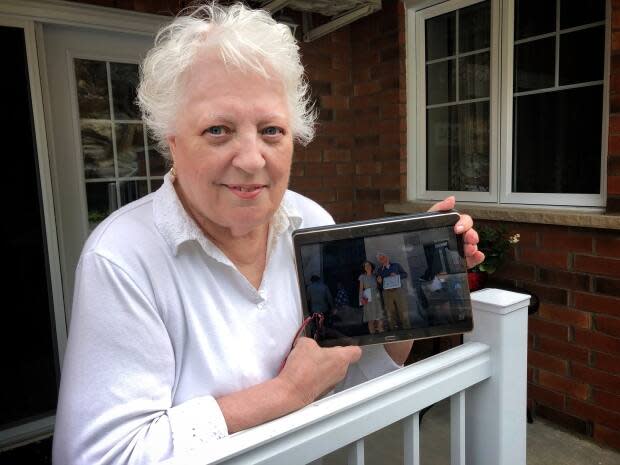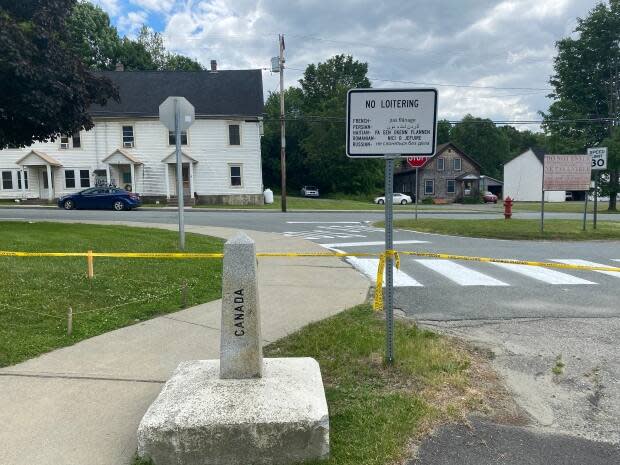Border communities frustrated that U.S. will open up later than Canada, keeping Quebecers home

Like many Canadians, Sherbrooke resident Jacqueline White has been kept from seeing family in the U.S. by a border that has been shut down to most travellers.
She hasn't seen her son, who lives in Boston, in nearly two years.
She says she was ecstatic Monday when she heard Canada would reopen its borders in less than three weeks and that her son could make the trip to Canada.
"The first thing we're gonna do is hug each other," she said. "It's been quite a while."
The 78-year-old said she considers herself lucky to still be around, and to have made it through the pandemic, following all the health and safety guidelines closely and getting vaccinated as soon as she was able.
She says everything she did was so she could see her son as soon as possible.
"And my soon as possible is right now," she said.

But despite the Canadian and American governments operating largely in lockstep since the border was first closed in March of last year, their reopening plans are now out of sync.
Prime Minister Justin Trudeau announced earlier this week that he plans to open the doors to fully vaccinated American visitors starting Aug. 9, but the Biden administration has decided to keep its border restrictions in place until at least Aug. 21.
The news has caused frustration from many border communities where local economies rely on tourist activity and travel.
"It's a big hit," said Jim Davis, member of the Vermont North Country Chamber of Commerce in Newport. "It's another summer gone."
Davis said Canadian visitors are a "key element" of border economies. During the summer months, Quebec boaters can cruise back and forth between the two countries on Lake Memphremagog, and during the winter, they make up most of the traffic at ski hills like Jay Peak.
He said in many border towns in Vermont, Quebecers account for nearly 40 per cent of the customer base, while the numbers are much higher at tourist destinations.
'We didn't see the border as a border'
Davis grew up in Derby Line, Vt., right on the border with Stanstead, Que.
In normal times there, high school students cross the border every day to attend Stanstead College, the Borderline Players theatre troop meets and performs at the Haskell Free Library and Opera House — a building that sits directly on the line between Canada and the United States — and Quebecers cross regularly to buy cheaper milk and gas.
But none of those activities have taken place in the last 16 months, and Davis says the change is keenly felt.
"We didn't see the border as a border, it was all our community," he said.
Now, he said he's counting down until he can enjoy "a nice Canadian beer" north of the border and soak up the Eastern Townships "culture and lifestyle."
Jean-Pierre Rancourt is a Quebecer, and co-owner of the Eastside Restaurant and the Eastside Marina, both in Newport, Vt.
He said he was shocked to hear the Canadian government would open its border before the American.
"There are a lot of businesses on the border that are suffering from the fact that Canadians are not allowed to come into the United States," he said.
Rancourt says while his businesses are well known and have done OK, he wants his Canadian customers back.
At his restaurant, in an average year, about 40 per cent of customers are Canadian; at the marina, it's closer to 50 per cent.
He said unfortunately he's not overly optimistic for an imminent reopening on the American side because, despite Vermont being well ahead of its vaccination targets, many states are falling behind and seeing a surge in COVID-19 cases.

